Cooking up Climate Cuisine
Chef Andrew Wilkinson’s Mission to Get More Kelp on Dinner Plates Across America
Imagine a world where the food on your plate not only satisfies your hunger but also helps save the planet.
This is the vision of Chef Andrew Wilkinson, who is leading a culinary revolution with an unexpected hero: kelp.
According to recent studies, moving to a plant-based diet could reduce emissions by as much as 61%. Even if Americans only reduced their beef intake by a quarter — think Meatless Mondays — it would be the equivalent of taking 11 million cars off the road each year!
In order to combat climate change, we have to change the way we eat.
“Our food system is broken,” Chef Andrew Wilkinson, North Coast Seafoods’ Chef Director of Research and Development, said.
One approach to fixing our fossil-heavy agricultural practices has been making waves in the environmental community — farming vegetables in the ocean.
Ocean crops like seaweed are one of the most sustainable forms of food production on the planet! Seaweeds are tasty and nutritious, however, these plants from the ocean are not common in the typical American diet.
Chef Wilkinson is on the mission to change that. He wants kelp to become front and center on your dinner plates.
From Culinary Heights to Ocean Depths
I had the pleasure to meet the renowned Chef Wilkinson at his test kitchen at North Coast’s HQ in South Boston. North Coast Seafoods is a family-owned sustainable seafood supplier and processor based in Boston, Massachusetts.
I tasted a variety of Chef Wilkinson’s plant-based products made from fresh New England kelp cultivated off the coasts of Maine. His “Seaweed-ish” meatballs, sliders, and nuggets were delicious!
This won’t come as a surprise to many of my readers, but I have tried quite a number of kelp-based products available on retail shelves. What’s unique about chef’s creations are that they were designed for cafeterias and dining halls, not the freezer section at Whole Foods.
This is why I was most impressed by the freshness of Chef Wilkinson’s products. The flavors were so much more pronounced, free from heavy processing or artificial additives. The dishes were unique with a deep umami richness and juicy tenderness.
While I was indulging in my second helping of kelp nuggets, a colleague of Chef Wilkinson popped his head into the kitchen.
“Any kelp on the menu today, chef?” he asked eagerly. Wilkinson laughed and waved him in.
Chef Wilkinson has enjoyed a storied career in high-end culinary establishments. His journey to culinary innovation started at the prestigious Culinary Institute of America (CIA). My father, who was a recreational pastry chef and held a deep respect for the culinary arts, had always spoken fondly of the CIA growing up. I know he would have loved to try his hand at Chef Wilkinson's recipes.
Over the years, Wilkinson made his mark at renowned restaurants like the Rainbow Room in New York City and Boston’s Skipjacks’ Restaurant Group. He even opened a restaurant in Japan in the late 80s.
Wilkinson’s kelp-based creations emerged during the pandemic when traditional dining was on pause. This unexpected downtime allowed him to develop new recipes and explore the untapped potential of kelp—a nutrient-dense seaweed.
“Kelp is very clean,” Wilkinson said. “It’s the only plant in the world that needs no land, no fresh water, no pesticides or herbicides.”
Kelp is rich in vitamins and minerals, specifically calcium and magnesium, essential for strong bone health. Its anti-inflammatory properties and fiber contribute to heart health and improved immune function. Kelp's high iodine content supports thyroid function, which is crucial for regulating metabolism and energy levels.
Centering Kelp as the Main Course
Wilkinson’s “meatballs” are also naturally vegan and gluten free, made of a mix of kelp, green chickpeas, brown rice, and spices.
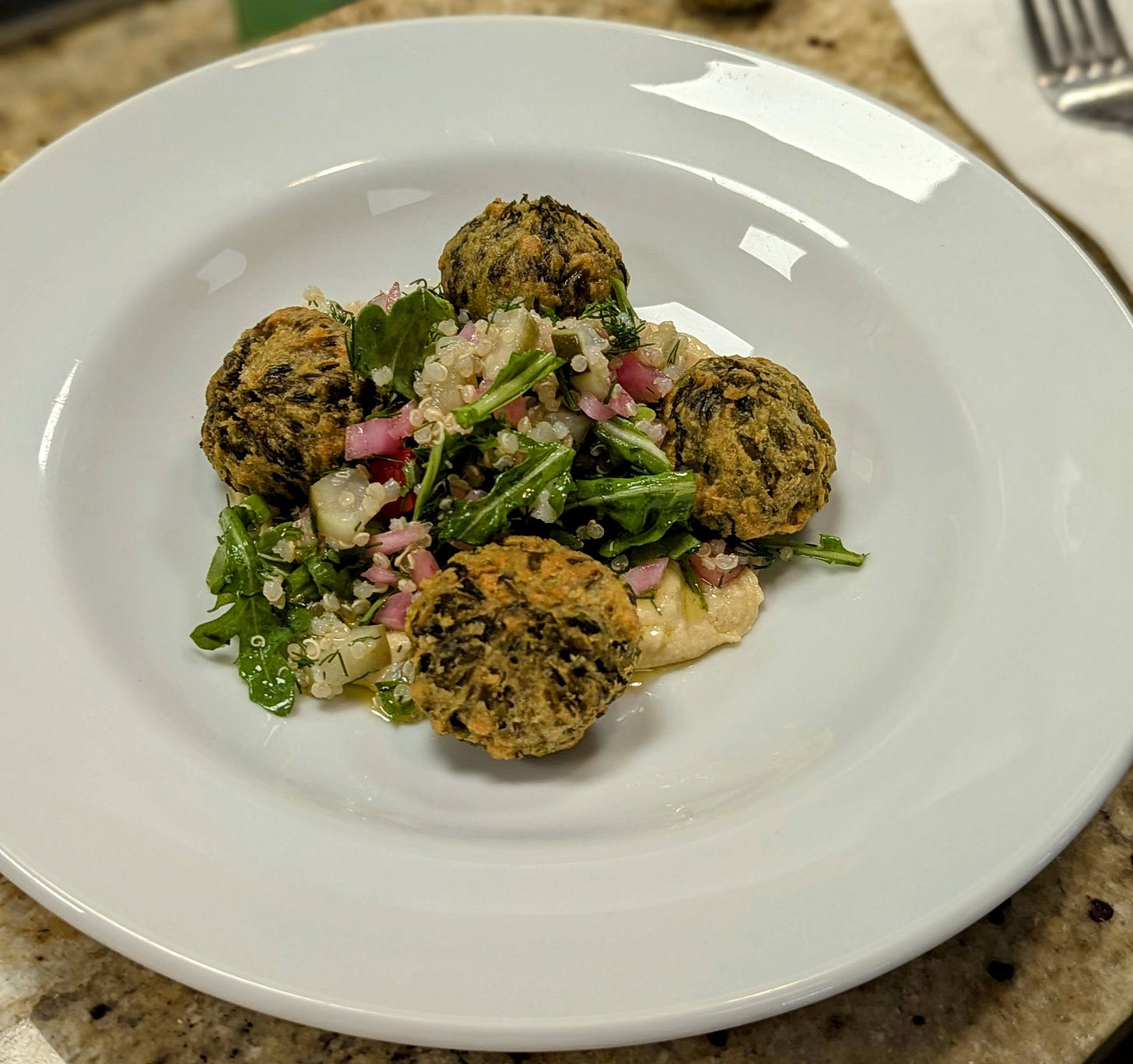
Wilkinson uses a partial cooking process that makes it possible to cook very large quantities quickly in a way that keeps the product fresher than through retail freezing methods.
Wilkinson wanted to focus his kelp-based products for school and dining services as opposed to retail because of his desire to make a larger impact, more quickly.
For instance, even a smaller school like Boston College serves about 40,000 meals a day. Wilkinson partnered with Boston College to bring his kelp-based meat alternatives to their cafeterias.
“In order to become a center of the plate item in school food service, you need to have it become a meat alternative,” Wilkinson said. “The protein [in the kelp meatballs] has 13 grams, so 26% of your daily intake, which meets the requirement to give the kids enough protein in their lunch service.”
The Seaweed-ish Meatballs were awarded Food Management’s Best Concept 2023 award for Sustainability which recognizes innovative thinking in on-site food services.
Supporting Local Fishers-Turned-Farmers
Not only is kelp good for you and good for the planet, but it’s also good for the coastal economy.
Growing up in Portland, Maine, Chef Wilkinson always had a love for seafood and the people catching it. Maine fishermen have traditionally been stewards of the ocean, but they now recognize that significant changes are needed to balance fishing practices with environmental preservation.
More than three billion people rely on seafood for their livelihoods, but fisherfolk across the globe travel further out to sea only to catch fewer fish.
In just a single generation, we have gone from fully stocked seas to 90% depletion of commercial fish species such as cod, salmon, tuna, and anchovies.
This has led advocates to turn to regenerative ocean farming as a way to offset the impact of overfishing. Wilkinson sources his kelp from Atlantic Sea Farms in Maine, one of the largest kelp producers in the U.S. The company harvested 1.3 million pounds of kelp in 2024 with the help of around 40 independent farmers.
Atlantic Sea Farms works with waterfront communities to help fishers start their own kelp farms by providing free seed, technical assistance, and guaranteed purchase of their harvest.
Fishers across New England have been able to supplement their lobster and wild fish harvests with kelp and shellfish farming during the off season. This win-win allows an additional income for the fishers-turned-farmers while simultaneously helping to improve local water quality and increase biodiversity.
From Cafeteria to Classroom
Wilkinson’s commitment to kelp goes beyond the kitchen.
He’s taken his message to the classroom, delivering guest lectures in public health courses at Boston College and in the K-12 schools across the state of Massachusetts.
“I created a program here called Real Food for Healthier Kids, where we supply them with value-added local seafood from the Gulf of Maine,” Wilkinson said. “Conscious eating is not just about ensuring what you choose to put into your body is good for you, but now it becomes good for the environment.”
Some of his creations included coconut crusted red fish and fish filets coated with cape cod kettle chips, all used with local fish species.
It was particularly impressive to Chef Wilkinson how students helped drive the campaigns at their schools and in their cities. He mentored and supported students at the City of Cambridge who had been advocating for a shift to healthier, more sustainable foods in their cafeterias. They started a campaign called Kelp Day, where the students shared Wilkinson’s creations with the community at large.
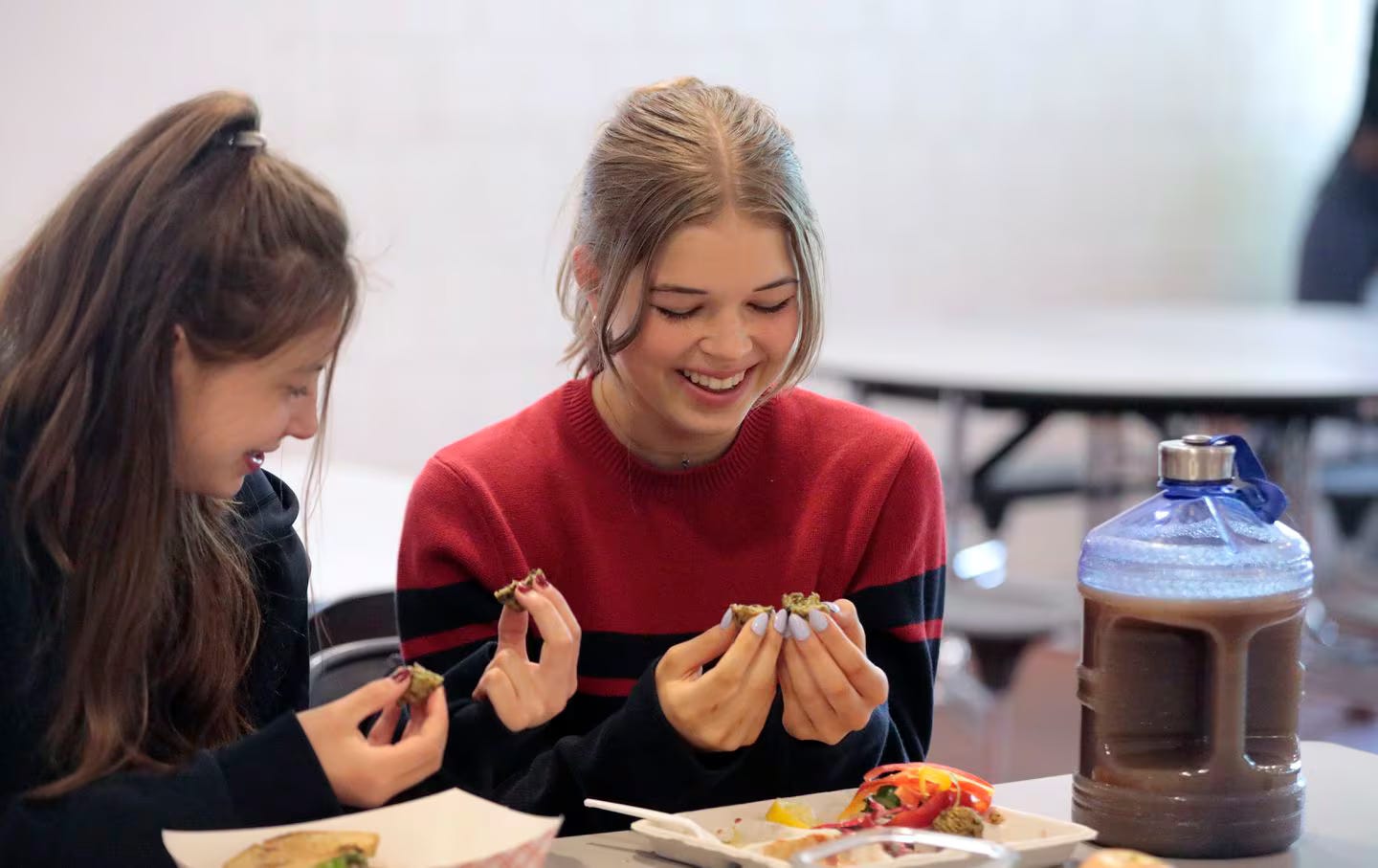
“The entire project has been a win-win-win,” Frank Bailey, Boston College Dining Services Associate Director of Food & Beverage, said. BC Dining gained a new, sustainable product, Chef Wilkinson got to test his innovations in a real-world setting, and students received a delicious new menu item that aligns with their values.
Feedback from students has been overwhelmingly positive, highlighting the successful integration of these kelp-based products into their daily lives.
If you’re interested in getting Seaweed-ish Meatballs on the menu at your school or business, be sure to reach out to Chef Wilkinson at awilkinson@northcoastseafoods.com, or visit North Coast’s website: https://www.northcoastseafoods.com/
Keep on kelping on, Chef Wilkinson!


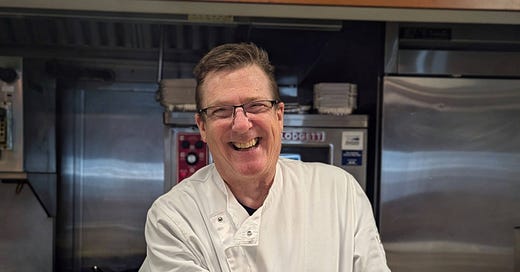






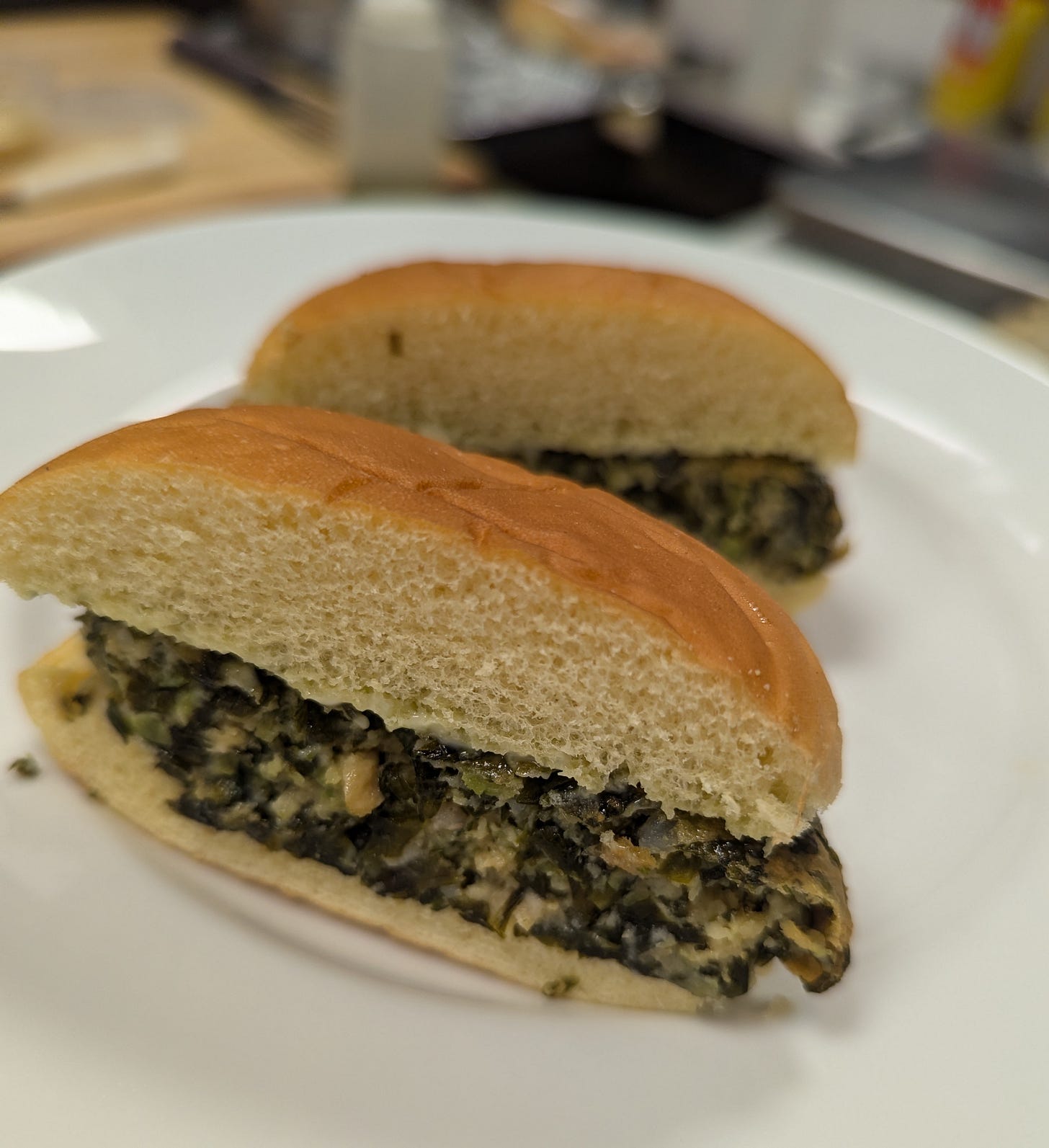

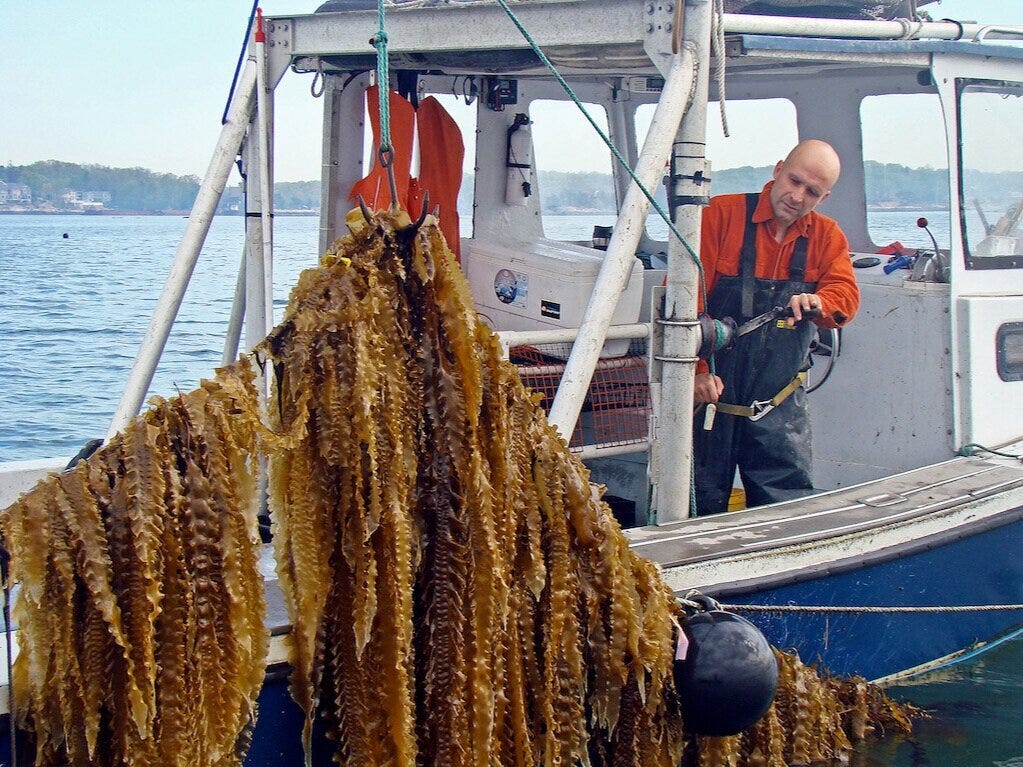


Chef Andrew is inspiring! Your articles are definitely making me think more about my meat consumption- and I pledge to cut back! 11 million cars- wow! Thanks for your research and sharing your passion!